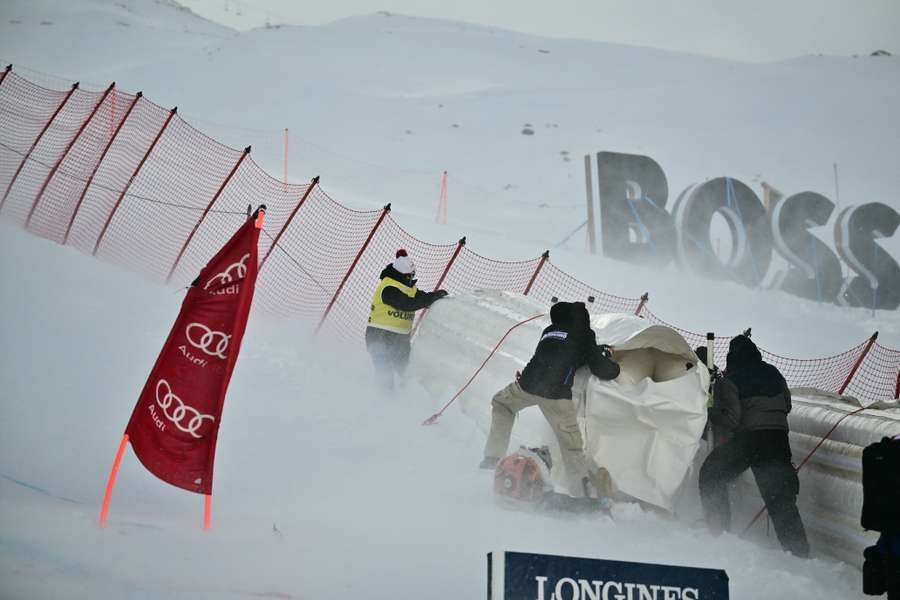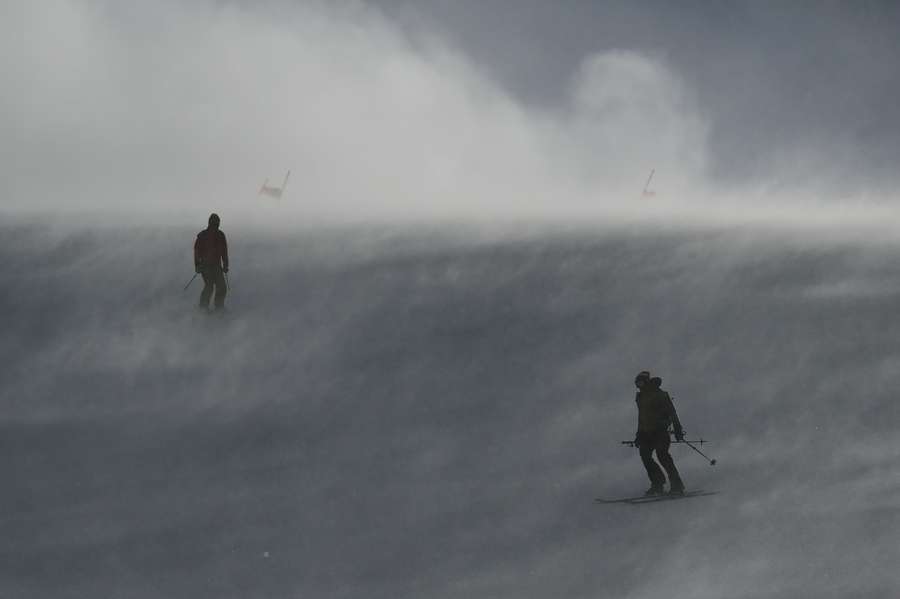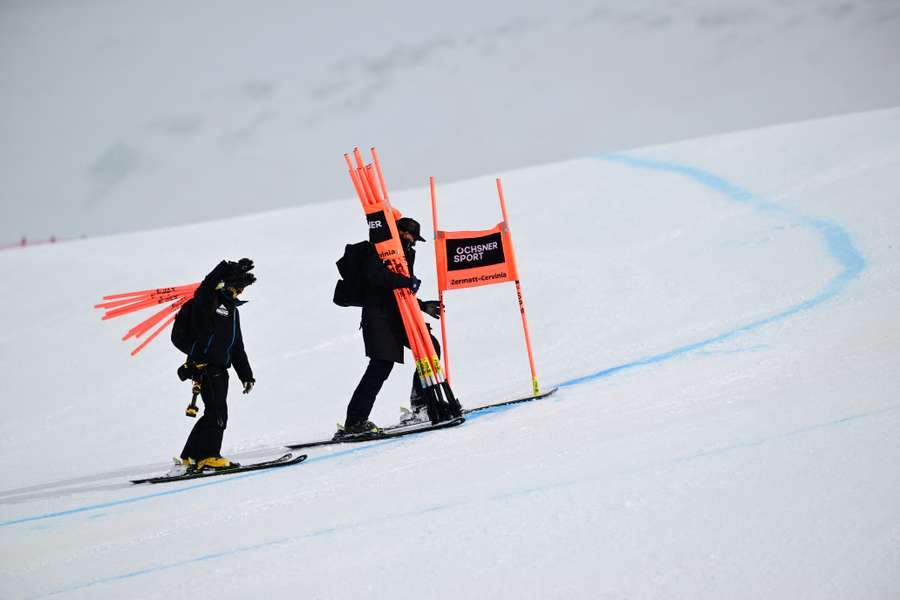Strong winds wipe out World Cup downhill at Zermatt-Cervinia

The first-ever event to straddle and cross the Italy-Switzerland border has been hit with a second straight blank season following Sunday's cancellation.
It comes after Saturday's race and two men's events last weekend were also abandoned and raises questions about the feasibility of holding events on the high-altitude piste.
The International Ski Federation announced the decision to cancel at the last minute, just as it did on Saturday, after a series of short postponements made in the hope that at least one of the weekend's two downhills could take place.

"Nature has the last word," said Franz Julen, the director of the organising committee on Saturday, referring to a lack of luck this year with a particularly challenging November.
"We're an outdoor sport, natures decides, we have to respect that," he said.
The Zermatt-Cervinia event was announced with great fanfare at the beginning of 2022 but lack of snow forced last year's races to be abandoned, while this and last weekend's events were hit by powerful gusts which made the rapid descents too dangerous.
All eight races scheduled for the piste, located on a glacier at an altitude of 3,500 metres, over the past two years have had to be cancelled.
"I think we've seen the limits of this race," said Johan Clarey, downhill silver medallist at the last Winter Olympics.
"Organising races at an altitude of more than 3,000 meters in November in a glacier area obviously increases the risk of cancellation."

The cross-border event has been the subject of considerable environmental controversy due to the logistics of preparing the piste which require helicopters and excavators on the glacier.
And retired Clarey, along with other still-active skiers, would like to see the alpine season start later in the year.
But Julen said "it is out of the question to give up" on the event, for which the organisers, the FIS and the Swiss and Italian winter sports federations signed a five-year contract.
"Logistics wise, it's impossible to do the race later on. Our only window is November, otherwise it's not possible for us," said Julen.
"The work on the glacier would be more than in autumn. Because we'd have to take three, four, five meters of snow away then we still have to fill up the crevasses."
Julen also added that sponsor interest would not be significant enough to justify the event at the end of the winter, as brands want to get visibility for skiing in the autumn, before the start of the tourist season and in the run-up to Christmas.

